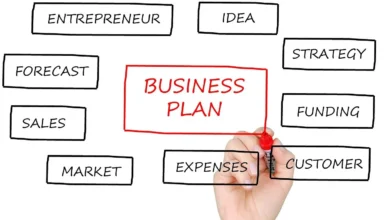Master the Art of Business Sales: How to Price a Business for Sale

Selling a business is one of the most significant financial decisions many entrepreneurs will face. Getting the price right is crucial—not just for attracting serious buyers, but also for ensuring you receive a fair deal that reflects the growth and hard work you’ve put in over the years.
However, it’s a delicate process. Small business owners often find themselves struggling to determine a price because emotions, market complexities, and the nuances of valuation can cloud judgment.
This guide will break down everything you need to know about how to price a business for sale. We’ll discuss the importance of setting the right price, go over key factors influencing valuation, explore pricing methods, and equip you with actionable steps to increase your business value before sale—all while offering tips on managing negotiations and securing a smooth final transaction.
Why Setting the Right Price Matters
The price tag you put on your business may seem like just a number, but it has a profound impact. Here’s why nailing the right price is critical.
- Underpricing Means Lost Profit
Setting your price too low could result in a final amount that doesn’t reflect the true value of all you’ve built. You risk walking away with less than you deserve, and potential buyers might even question the legitimacy of your business if the price seems unusually low.
- Overpricing Can Scare Buyers Off
Conversely, overpricing your business might drive buyers away, leaving your business unsold and stagnating on the market for months—or even years.
- Pricing Sets the Tone for Negotiations
The initial asking price serves as a starting point for negotiation. Aim for a competitive yet realistic price to attract credible offers and set the stage for successful discussions.
According to research by BizBuySell, businesses within the correct market valuation range sell faster and receive better offers than those priced incorrectly. With the stakes so high, ensuring accuracy is non-negotiable.
Factors That Influence the Value of Your Business
What makes one business worth millions while another sells for much less? Buyers typically evaluate a business based on these core elements:
1. Revenue and Profit Margins
Your sales and profit numbers are usually the first things buyers look at. A profitable business with growth potential is naturally more appealing.
For example, a café with steady annual revenue and an increasing profit margin will likely draw more interest than one whose finances are unpredictable.
2. Industry Trends and Market Demand
Current market conditions shape the perceived value of your business. Certain industries may be thriving, while others face challenges due to market saturation or declining demand.
If you’re selling in a booming sector, such as tech or eco-friendly products, your business is likely to fetch a higher price than one in a struggling industry.
3. Stability & Scalability
Buyers will also consider your business’s potential for future growth. A company with robust systems, low debt, and scalability will often appear more valuable than one overly reliant on a single individual or client.
4. Assets and Intangibles
While tangible assets like equipment, property, or inventory obviously affect valuation, intangibles are equally important. Your brand reputation, intellectual property, and customer loyalty can significantly boost perceived value.
For instance, a retail shop with a strong local following and excellent reviews has intangible assets that serve as a selling point.
Valuation Methods for Small Business Owners
Several valuation methods can help you calculate a suitable price for your business. Here’s a look at the most commonly used ones:
Asset-Based Valuation
This method involves adding up the value of your business’s tangible and intangible assets and subtracting liabilities. While straightforward, it focuses on the current state of your assets, not your earnings potential, making it most suitable for businesses with significant physical assets.
Earnings Multiple Approach
The earnings multiple method calculates valuation based on your profits, often expressed as EBIT (Earnings Before Interest and Taxes). Buyers will multiply this figure by a number that reflects your industry, growth potential, and risk. For small businesses, multiples typically range between 2x and 5x earnings.
Market-Based Valuation
With this approach, your business is valued based on what similar businesses in your industry and region have sold for. This comparison provides context and helps ensure your price aligns with market expectations.
Tip: Service-based businesses may lean towards earnings multiples, whereas retail businesses often prefer asset-based valuations. Choose the method that best suits your industry and business model.
Increasing the Value of Your Business Before Selling
Want to boost your business’s appeal before sale? These actionable steps can make a big difference.
- Streamline Operations
Simplify processes to improve efficiency and profitability. For example, automating inventory management or training staff to handle diverse roles can make your business more attractive.
- Expand and Strengthen Your Customer Base
A broader customer base with high retention rates signals stability and growth potential to buyers. Consider loyalty programs or improved customer engagement to build a stronger connection with your audience.
- Document Everything
Buyers appreciate transparency. Create clear documentation for procedures, financial records, and daily operations. A detailed transition plan can also reassure prospective buyers about taking over.
- Enhance Your Brand Presence
Ensure your business has an impactful and cohesive online and offline presence. Update your website, increase social media engagement, and invest in marketing campaigns that boost visibility and reputation.
Case Study: A boutique bakery in Melbourne increased its valuation by 25% in just six months by updating their website and documenting internal processes to make the business more transferable.
Setting a Competitive Yet Realistic Asking Price
Striking the right balance between your expectations and market realities is crucial. Here’s how to set a price that works for both you and potential buyers.
- Conduct Competitor Research
Evaluate similar businesses currently up for sale in your industry. Tools like BizBuySell or regional business-for-sale platforms can provide comparable data.
- Avoid Emotional Pricing
Separate personal attachment from the pricing process. Be realistic about what your business is worth to investors, not just you.
- Test Market Reception
Gauge initial interest by quietly promoting your sale within trusted circles or local networks. Use feedback to refine your price.
Handling Offers and Negotiations
Once offers start coming in, it’s time to negotiate smartly. Here’s how to handle this stage effectively.
- Evaluate More Than the Dollar Amount
Don’t focus solely on the price—consider terms like the payment structure, buyer’s plans for the business, and any ongoing commitments.
- Know When to Counter
If an offer seems too low, provide a justified counteroffer supported by data and valuations. Stay firm yet reasonable during discussions.
- Seek Professional Advice
Business brokers or consultants can provide valuable guidance during negotiations, helping you identify serious buyers and avoid red flags.
Closing the Deal and Transitioning
The final steps often make or break a successful sale, so handle them with care.
- Ensure Clear Terms
Both parties should agree on all terms in a well-drafted sales agreement before signing.
- Transfer Ownership Smoothly
Transition assets, intellectual property, and access rights as outlined in the agreement. Offer training or support if needed for a seamless handover.
Building Positive Buyer Relationships
Maintaining a good rapport with the buyer can simplify the process and ensure the legacy of your business continues successfully.
Make the Right Move Today
Selling a business may feel daunting, but with informed decisions and proper preparation, it can also be immensely rewarding. From understanding valuation methods to mastering negotiations, each step plays an integral part in achieving a successful outcome.
Take action today! Sign up for our newsletter to access exclusive resources on maximising your business sale, or contact our expert team for tailored advice that will set you up for success.



